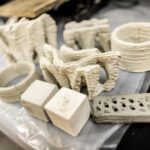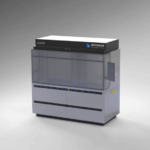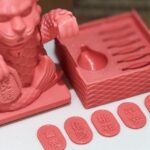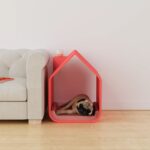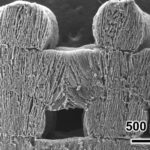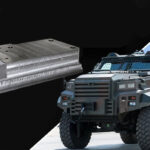Unlike many other constructs, 3D printed metamaterials have the ability to alter with time. Now, researchers at University of Southern California Viterbi School of Engineering have developed self-repairing 3D printed rubber materials. While incredible on its own, the discovery could potentially revolutionise soft robotics, car-tyres and footwear.
The research created the material through photopolymerisation but the real trick is in making thiols self-healing. The team altered the material by adding oxidizers to the process, causing the thiols usually present to turn to disulfides. They also needed to adjust the ratio due to the competing properties they were adding into the mix.
“When we gradually increase the oxidant, the self-healing behavior becomes stronger, but the photopolymerization behavior becomes weaker,” explained Wang. “There is competition between these two behaviors. And eventually we found the ratio that can enable both high self-healing and relatively rapid photopolymerization.”
Self-Repairing Rubber Applications
Rubber is a crucial material in tyres and shoes and could have further applications in soft robotics. This new 3D printed rubber is easily and quickly producible while being able to repair itself from fractures and punctures. Assistant Professor Qiming Wang has worked in the world of 3D printed materials for a while now. Wang brought in this expertise, working with Viterbi students Kunhao Yu, An Xin, and Haixu Du, and University of Connecticut Assistant Professor Ying Li.
They were able to print a 17.5-millimeter square in 5 seconds. They could also complete full objects in around 20 minutes, showcasing full self-repair within a few hours. The team even showed off a range of products including a shoe pads, soft robots and electronic sensors. After being cut in half at 60 degrees Celsius, most items repaired themselves completely within just two hours. More complex parts, like electronics, took four hours due to the carbon present for transmitting electricity. The self-repairing rubber objects managed to retain their strength and function throughout the rearrangement. The researchers also found that they could decrease repair time by raising the temperature.
The team’s work with the 3D printed rubber is not done yet, however. They are currently working on customising and altering the characteristics of the rubber, adding stiffness and experimenting with harder versions. This could lead to interesting applications in car or bicycle tyres and rougher terrain shoes, etc.
Featured image courtesy of University of Southern California, retrieved via ScienceDaily.


